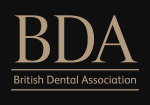
Conditions
Recessions
Gum recession is incredibly common among adults, creating a sense of normalcy among sufferers.

About This Condition
The truth is, gum recession is not a normal part of the aging process. Instead, gum recession can be a symptom of a more serious oral health concern.
- Sensitivity: Receding gums expose teeth and roots, causing sensitivity.
- Spacing: Small pockets or indents can form between and behind teeth as gums recede.
- Bleeding: Bleeding gums while brushing or flossing can be an indication of a receding gum line.
Age. While gum recession can occur at any age, it is most often found in older adults. This is due to the fact that the gums naturally recede as we get older. While proper oral hygiene can limit or delay this effect on the gums, it is an unavoidable part of aging for many patients.
Periodontal Disease. One of the most serious and preventable reasons for receding gums is gum disease. The gums are also likely to be red, swollen and pulling away from the tooth roots. This gum infection is a progressive condition that needs urgent treatment before the teeth become loose and your overall health is compromised.
Hard Brushing. Brushing harder is not always better. In fact, aggressive brushing or using a hard-bristled toothbrush can cause your gums to recede due to the unnecessary pressure and force. Gentle brushing can get the job done while protecting your gums.
Poor Oral Habits. Clenching your teeth, grinding your teeth, nail biting and smoking are all considered harmful oral habits that can cause gum recession as well as other dental problems over time.
Genetics. Another culprit to gum recession that is out of your control is genetics. If you have a family member that suffers from receding gums and/or gum disease, you have a much higher risk for facing the same struggles. It will be important to take preventative measures to protect the health of your gums as you age.









